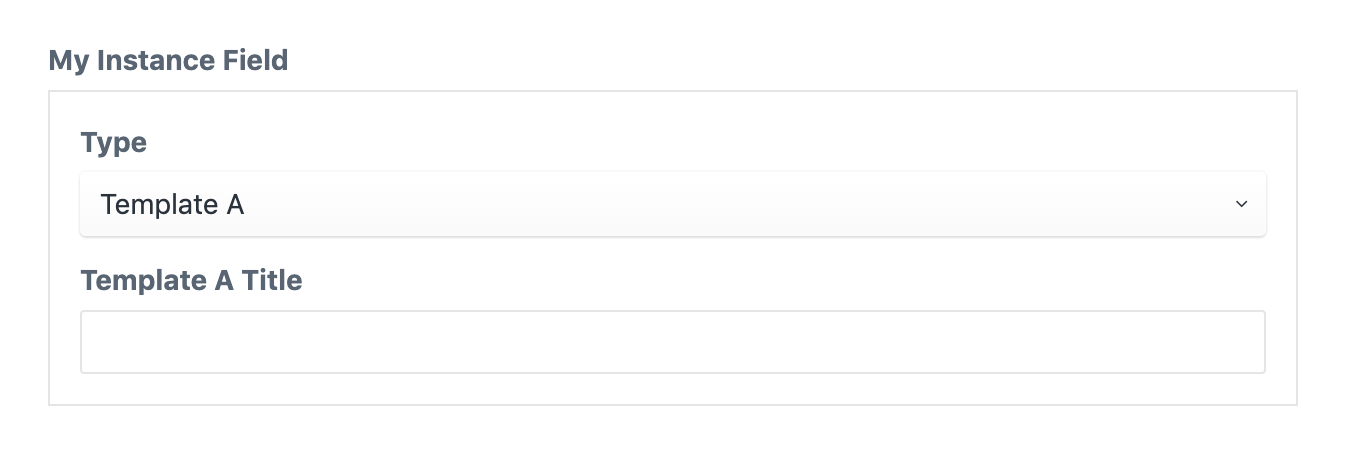Instance field
The instance field allows a field to hold another template (or schema) allowing you to build nested hierarchies.
myInstanceField:
type: instance
schemas:
- path/to/template-a.twig
- path/to/template-b.twig
This field definition creates the following input in the control panel:

Attributes
| Property | Description |
|---|---|
| group | Starts a new field group. |
| instructions | Additional instructions for this field in the control panel. Will be shown beneath the field label. |
| label | The primary `label` of the input field in the control panel. When omitted, a label will be generated from the name of the field. |
| rules | The validation rules of the field. |
| schemas | Required. A list of all allowed schemas. If multiple schemas are specified, a dropdown will be shown in the control panel. |
| width | The width of the field in the control panel. |
schemas
A list of all allowed schemas. If multiple schemas are specified, a dropdown will be shown in the control panel. This can either be a single string or a list of schema names.
schemas:
- path/to/template-a.twig
- path/to/template-b.twig
You may use wildcards to include entire directories.
schemas: path/to/*
Templating
You can render the template of the instance field by using the :code:display
twig tag.
label: Instance field demo
fields:
instanceField:
type: instance
schemas: blocks/\*
---
{% display instanceField %}
You can also use the html utility function to retrieve the rendered
template as a twig html node.
{{ instanceField.html }}
The html utility function allows you to pass additional template
variables:
{{ instanceField.html({
extraValue: 'Some value'
}) }}
The instance contains the full data set of the schema and you can directly access fields defined on the schema:
{{ instanceField.title }}